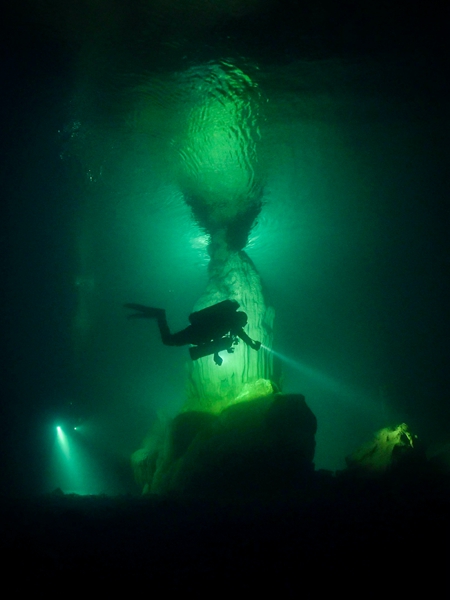 |
|
Zhou Yuanjie goes cave diving with his teammates in Tangbian village, Qingzhen city, Guizhou province, in November 2019.[Photo provided to China Daily] |
"I felt my sense of time, direction, familiarity and comfort all vanish," he says.
In one of those quirks of fate that can change lives, Zhou, who lives in Guiyang, provincial capital of Guizhou, found out that he lived close to the search team's leader. So, he began to learn from him about this underground world and the skills necessary to navigate it.
"I spent practically all of my energy after work focusing on spelunking," Zhou says.
He learned how to use rope to climb cliffs, how to snorkel and how to paraglide before he joined professional cave exploration teams.
But it took him time, literally, to find his feet. In the beginning he had to conquer vertigo and nausea.
"First, you need to learn not to be a burden on the team, as well as how to install equipment and where to go in the unknown territory of a cave," Zhou says.
"Safety is of the utmost importance, and every team member has to receive rigorous training and learn to deal with the extreme environment and accidents that might occur at any time."
Zhou also picked up knowledge about caves, from rock formations to the changeable conditions underground, such as temperature and humidity levels.
"One needs to know the formation process of what's inside a cave, and its different characteristics during dry and rainy seasons," he says.
Moreover, spelunkers also have to protect the cave they enter. No food and batteries can be left behind. Take nothing but memories.
"It takes a long time for cave sediments to form, and I would rather give up a photo if taking it would undermine the existing cave structure," Zhou says.
Guizhou abounds in karst landforms which take the shape of enclosed depressions, sinkholes, as well as cave systems and subterranean rivers.